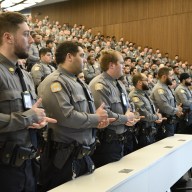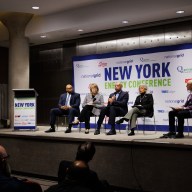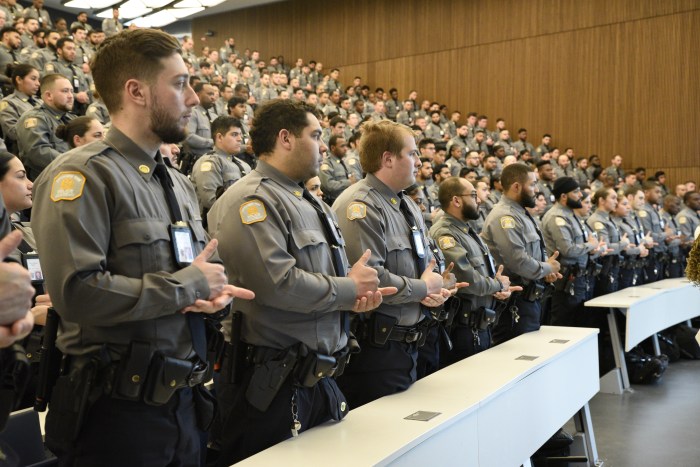By Daniel Massey
Amric Singh Rathour sat in class at the NYPD’s training academy in June hoping to fill the pages of a thin, black spiral notebook with specifics on issuing parking and moving violations.
But after more than a month of classroom training to become a traffic enforcement officer, the 25-year-old Sikh’s notebook contained more information on the department’s dress code than its traffic regulations.
The NYPD fired Rathour of Ozone Park from his job as a probationary traffic enforcement agent in August because he refused to cut his beard and remove his turban. Unshorn hair and a headcovering are requirements of his religion.
Rathour is at least the second Sikh to run into trouble with the NYPD’s dress code in recent months. Jasjit Singh Jaggi, a Richmond Hill resident, is involved in an ongoing battle with the department to keep his uncut beard and turban.
The American-born Rathour read about Jaggi’s case in the Timesledger. His advice for the aspiring cop: “I would tell him not to go along with them, to fight for his beliefs.”
Rathour, who was fired from a job loading luggage at JFK Airport in 2000 because of his beard and turban, had hoped working for the NYPD would present him with a chance to pursue a profession while remaining a loyal follower of his religion.
“I thought because I’d be working for the city I wouldn’t have a problem of discrimination,” he said. “The city is supposed to protect you against religious discrimination.”
Pointing to a note in his black book that read “beard should come off, hat is part of the uniform,” Rathour said he was frequently called out of class at the NYPD’s training academy and told to shave his beard and remove his turban.
Determined to remain in the training academy, Rathour filed a reasonable accommodation request with the department’s Equal Employment Opportunity office.
Officials from the EEO would not comment on the issue. Calls were directed to the deputy commissioner of public information office, which said it would respond to a faxed request in the new year.
Section I.B.1.C of the New York City Police Department Equal Employment Opportunity Policy, 2001, states the department must “provide a reasonable accommodation for an employee’s religious observance, unless such accommodation would result in undue hardship to the department.”
Rathour was called to an EEO hearing, but he refused to attend because he was not given enough notice to have counsel present. He was given a month to reschedule the hearing, but the department terminated him before the end of that period.
He said he was given one last chance to cut his hair and remove his turban before he was suspended. “Will you do it?,” Rathour said he was asked. “I refused for religious reasons. I could not cut my hair or take off my turban,” he said.
After a final warning, Rathour was suspended from the academy on Aug. 1. “When I got suspended, they said I could wear a yarmulke,” he said.
On Aug. 27 he was terminated by order of the police commissioner.
Rathour insists his beard and turban do not in any way affect his job performance. “Your career is destroyed by these people because they want everyone to look alike,” he said.
In 1990 a Sikh member of the Royal Canadian Mounted Police successfully challenged the Mounties in court for their refusal to allow him to wear a turban as part of his uniform and in 1996 a Hasidic Jewish man with a broad black beard and nearly foot-long sidelocks began working as a police officer for the Rockland County, N.Y. Sheriff’s Department after receiving a religious waiver.
Rathour brought out a photo of his brother Ranjit, who is not an observant Sikh, being honored by Police Commissioner Bernard Kerik at a graduation ceremony. Ranjit is clean-cut and does not wear a turban.
“You know I wanted to be up there, too,” he said. He’s just up there because he’s shaven, but I wanted to be up there with Bernard Kerik too.”
As for his own career, Rathour found a job with an overnight mail delivery service, but he said employment has not eased the pain of all he has been through.
“I no longer believe this is my home. I believe I’m a stranger,” he said. “At one point I did believe this was my country.”
Reach reporter Daniel Massey by e-mail at Timesledger@aol.com or call 229-0300, Ext. 156.




























